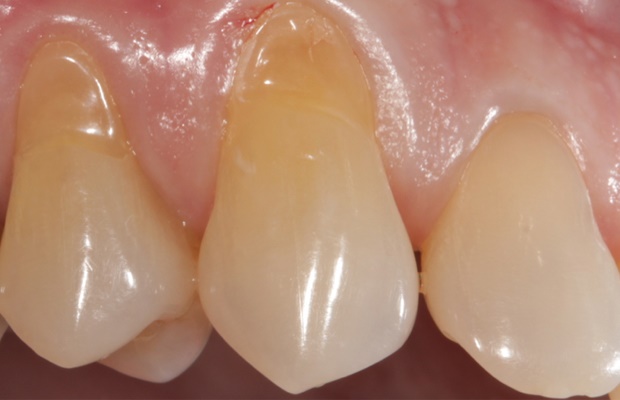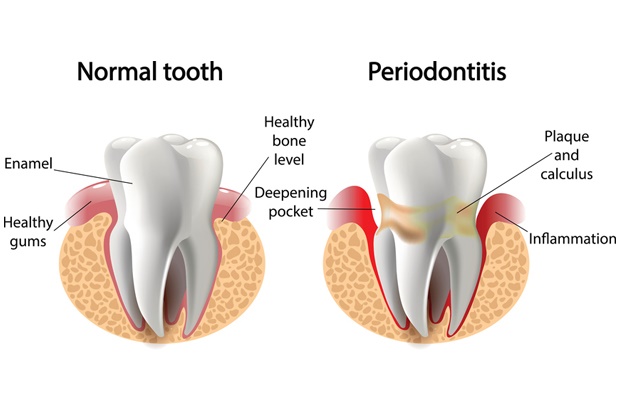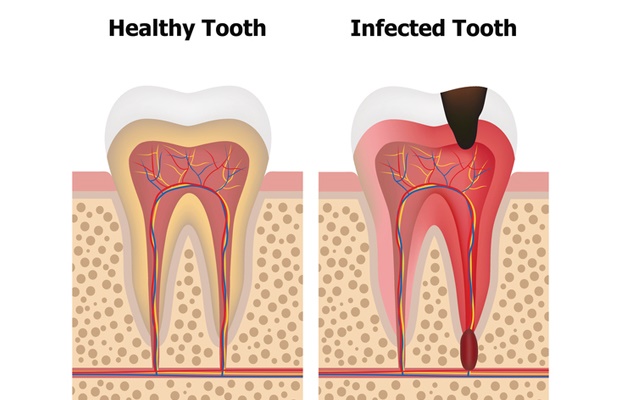Tooth sensitivity can be caused by exposed roots or nerve issues.
When it comes to an exposed root, gum recession is often the cause.
Abrasion and gum disease are the two main reasons why gum recession occurs.
Abrasion
When you brush your teeth excessively you can damage the surface and cause the gums to recede. This is a common problem – I always advise people to use a smaller, softer brush than they normally would.
You also need to stop brushing your teeth so much and start cleaning them instead! The tooth surface is round, not flat, yet we tend to scrub our teeth like we would the bathroom tiles.
Slow down and allow the brush bristles to get between your teeth. The surfaces we tend to scrub are often not that dirty to begin with.

Gum disease
Gum disease (or periodontal gum and bone disease) is usually painless, but can be extremely damaging to both the gums and bone around your teeth. Once the gums have receded, the bacteria which caused the recession, will move below gum level and beyond the reach of your toothbrush, floss and mouthwash. Here they will literally eat away large amounts of bone.
In severe cases, gum disease can cause loose teeth and, in extreme cases, tooth loss.
Periodontal disease also affects your overall health and has been shown to be linked to problems with blood pressure, heart disease, diabetes and a raised risk of premature birth in pregnant women.
Nerve issues
Sometimes tooth sensitivity issues are caused by an over-reacting nerve inside the tooth. In this case, despite a healthy tooth structure, the tooth (or teeth) may still be sensitive.
The most common cause of this type of sensitivity is trauma to the tooth.
A dental abscess is usually seen as a dark area at the root tip and does not always have to be as a result of an infection – tooth trauma can often cause an abscess on an otherwise healthy tooth.
In some cases, the teeth may have been bumped or knocked, or you may have just bitten down hard on something unexpectedly, like an olive pip.
The tooth or teeth will usually be sensitive to both temperature and pressure but, given time, will often settle down again – dentists call it “the bruised tooth”.
If the problem worsens, see your dentist as sometimes the damage can be permanent, in which case the damaged nerve and blood vessels die inside the root canal, which might lead to the development of an abscess.
The other cause of irreversible nerve damage is bruxism (tooth grinding). Apart from the external damage to the tooth, the long-term grinding forces on the teeth can also damage the blood vessels to the teeth, which may in turn cause sensitivity issues in the early stages and possibly lead to an abscess later, as the nerve and blood vessels die inside the tooth (necrosis).
Read about other causes for sensitive teeth here.
Image credits: iStock, Wikicommons




 Publications
Publications
 Partners
Partners
















